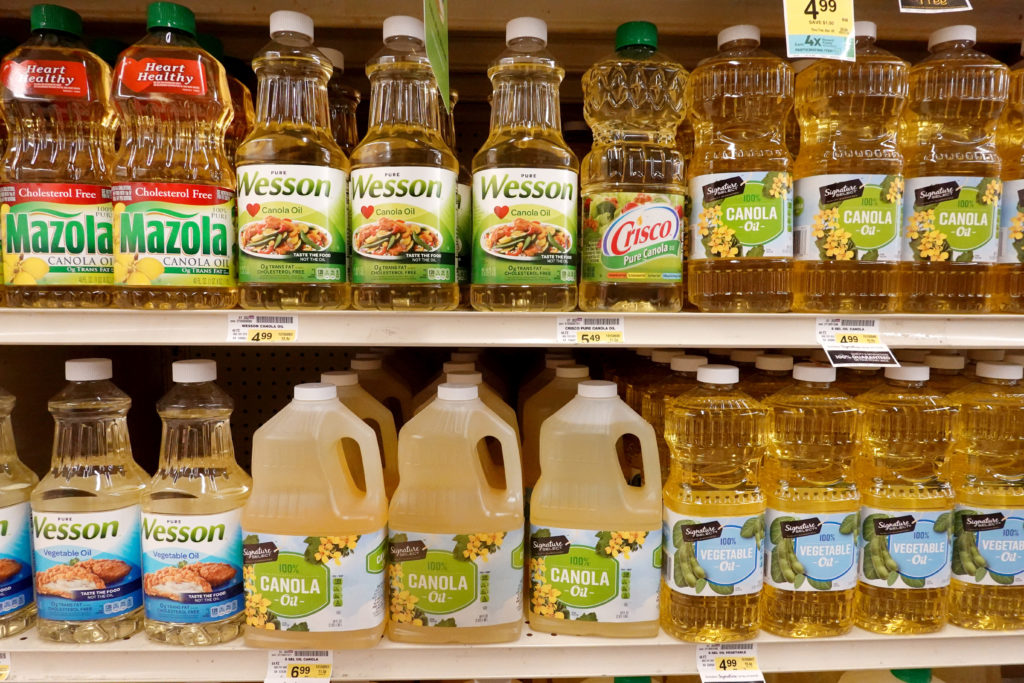
# **Are Vegetable and Seed Oils “Toxic”? Disentangling Fact from Fiction**
From TikTok trends to top-selling books, vegetable oils—commonly referred to as “seed oils”—are currently a contentious issue in the world of nutrition. Some contend that these oils are akin to “toxic sludge,” “motor oil,” and “the primary contributor to chronic disease that remains overlooked.” In contrast, others maintain that they are benign, even advantageous, and significantly superior to butter or other animal fats.
So, who holds the truth? As is often the case with nutritional discussions, the reality is more complex than social media suggests.
Let’s delve into the science surrounding vegetable oils, their health implications, and how to make educated decisions regarding the fats you include in your diet.
—
## **What Are Vegetable Oils?**
The term “vegetable oils” encompasses a wide range of oils, including those sourced from seeds. Some of the more prevalent varieties are:
– Canola oil
– Corn oil
– Safflower oil
– Sesame oil
– Sunflower oil
– Soybean oil
– Grapeseed oil
Note: Oils derived from fruits—such as olive, avocado, palm, and coconut oil—are not classified as vegetable or seed oils.
—
## **How Are Vegetable Oils Processed?**
The extraction of vegetable oils involves considerable processing. The process typically consists of three primary steps:
1. **Crushing:** High pressure is applied to seeds to extract oil.
2. **Refining:** Heat and solvents (such as hexane) are used to draw out additional oil.
3. **Deodorizing:** The oil is heated to 400°F (204°C) to neutralize flavors.
This refining procedure leads to the depletion of advantageous polyphenols and some unsaturated fats turning into **trans fats**, which are recognized as harmful. While the FDA prohibited artificial trans fats in 2018, **small quantities can still naturally develop during extensive processing or deep frying**.
Labeling vegetable oils as “toxic” might be an exaggeration, but it’s valid to approach refined oils with caution.
—
## **Are Vegetable Oils Bad for You?**
The controversy surrounding vegetable oils centers on two primary issues:
### 1. **Omega-6 Fatty Acids and Inflammation**
Vegetable oils are typically high in **omega-6 fatty acids**. Researchers have raised concerns that a **disproportionate omega-6 to omega-3 ratio** in diets could trigger chronic inflammation, thereby elevating the likelihood of obesity, diabetes, and heart disease.
Recent studies, however, propose that omega-6s might not be inherently inflammatory—especially when sourced from whole foods like nuts and seeds. Some research even suggests that **substituting saturated fats with omega-6-rich vegetable oils could decrease heart disease risk**.
### 2. **Oxidation and Heat Stability**
Polyunsaturated fats (PUFAs) found in vegetable oils are chemically less stable than monounsaturated fats (such as those in olive and avocado oil). When subjected to high temperatures (like in frying or processing), these oils may oxidize, resulting in a surge of free radicals—substances linked to cell damage and inflammation.
Oils rich in monounsaturated fats—such as olive oil, avocado oil, and high-oleic sunflower or safflower oils—are generally **more stable** and less susceptible to oxidation.
—
## **Which Cooking Oils Are Best for Your Health?**
### **🥇 Optimal Choices: Extra Virgin Olive Oil & Avocado Oil**
– **Olive oil** is abundant in monounsaturated fats and polyphenols, which have been associated with reduced risks of **heart disease, type 2 diabetes, and cognitive decline**.
– **Avocado oil** offers similar benefits to olive oil and has a higher smoke point, making it suitable for high-heat cooking.
### **🥈 Strong Contender: Expeller-Pressed Canola Oil**
– More affordable than olive and avocado oils.
– Contains omega-3 fatty acids and heart-friendly monounsaturated fats.
– Expeller-pressed indicates that it’s processed without harsh chemicals.
### **🥉 Minimize These: Highly Refined Vegetable Oils & Deep-Fried Foods**
– Oils like **corn, soybean, safflower, and grapeseed** are frequently refined and depleted of beneficial nutrients.
– They are commonly found in **ultra-processed foods**, which research connects to obesity, heart disease, and depression.
**Alternative options:** If you choose to use vegetable oils, select “high-oleic” versions (e.g., high-oleic sunflower or safflower oil) that offer more stable monounsaturated fats.
—
## **Which is Better: Vegetable Oil or Butter?**
Both highly processed vegetable oils and butter come with their own potential downsides.
| **Factor** | **Refined Vegetable Oil** | **Butter** |
|————–|—————–|———|
| Processing | Highly refined,